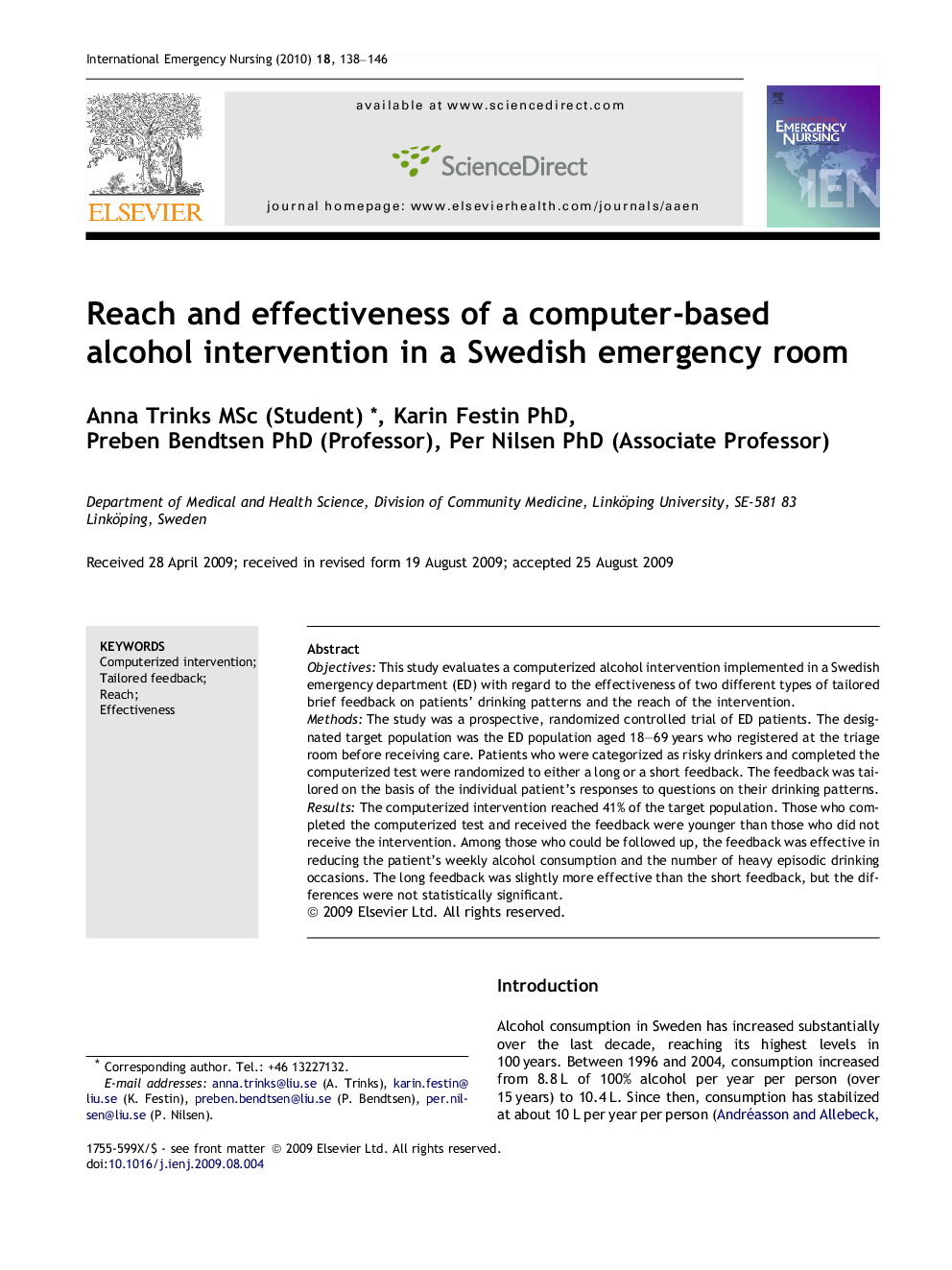| Article ID | Journal | Published Year | Pages | File Type |
|---|---|---|---|---|
| 2609642 | International Emergency Nursing | 2010 | 9 Pages |
ObjectivesThis study evaluates a computerized alcohol intervention implemented in a Swedish emergency department (ED) with regard to the effectiveness of two different types of tailored brief feedback on patients’ drinking patterns and the reach of the intervention.MethodsThe study was a prospective, randomized controlled trial of ED patients. The designated target population was the ED population aged 18–69 years who registered at the triage room before receiving care. Patients who were categorized as risky drinkers and completed the computerized test were randomized to either a long or a short feedback. The feedback was tailored on the basis of the individual patient’s responses to questions on their drinking patterns.ResultsThe computerized intervention reached 41% of the target population. Those who completed the computerized test and received the feedback were younger than those who did not receive the intervention. Among those who could be followed up, the feedback was effective in reducing the patient’s weekly alcohol consumption and the number of heavy episodic drinking occasions. The long feedback was slightly more effective than the short feedback, but the differences were not statistically significant.
